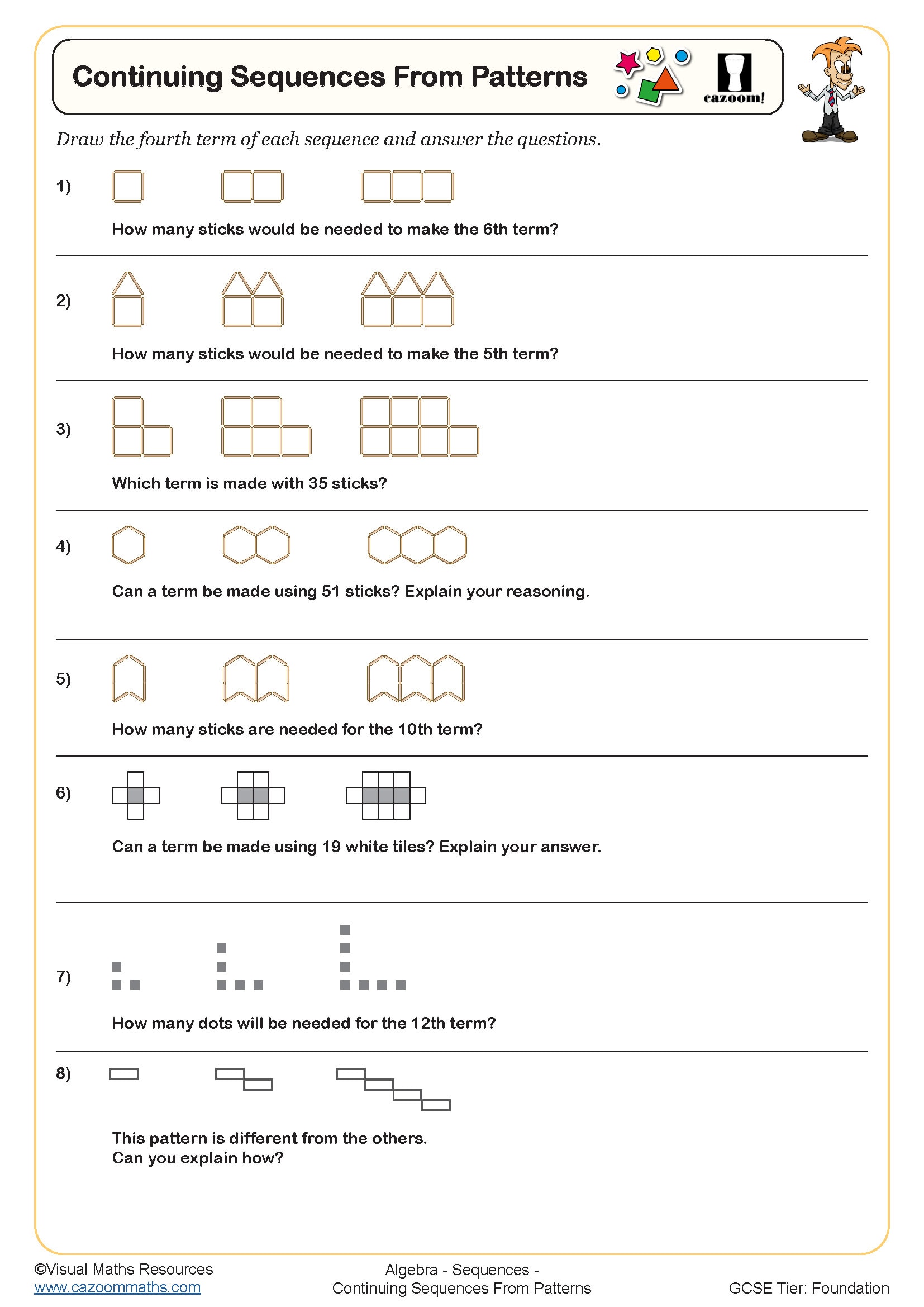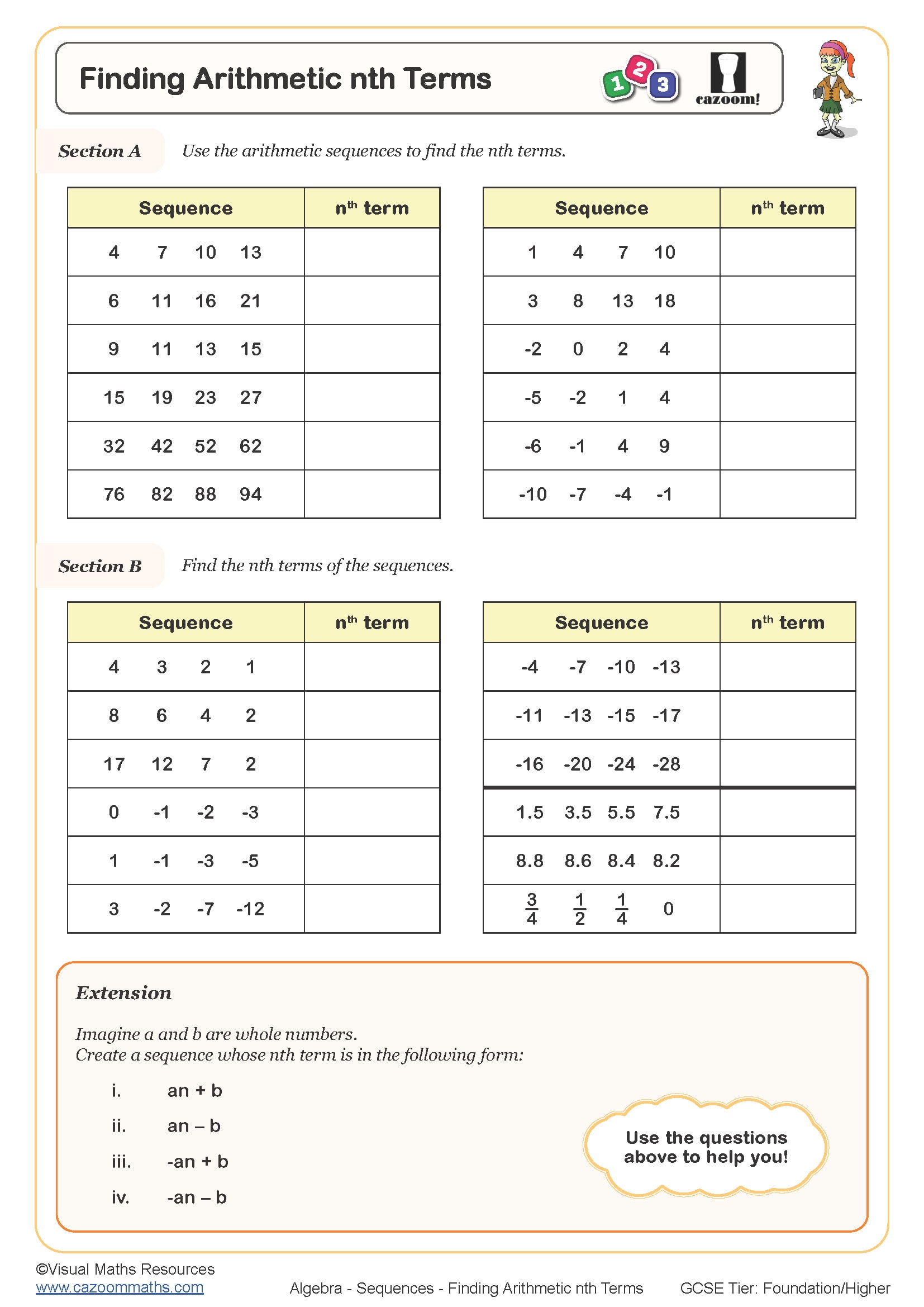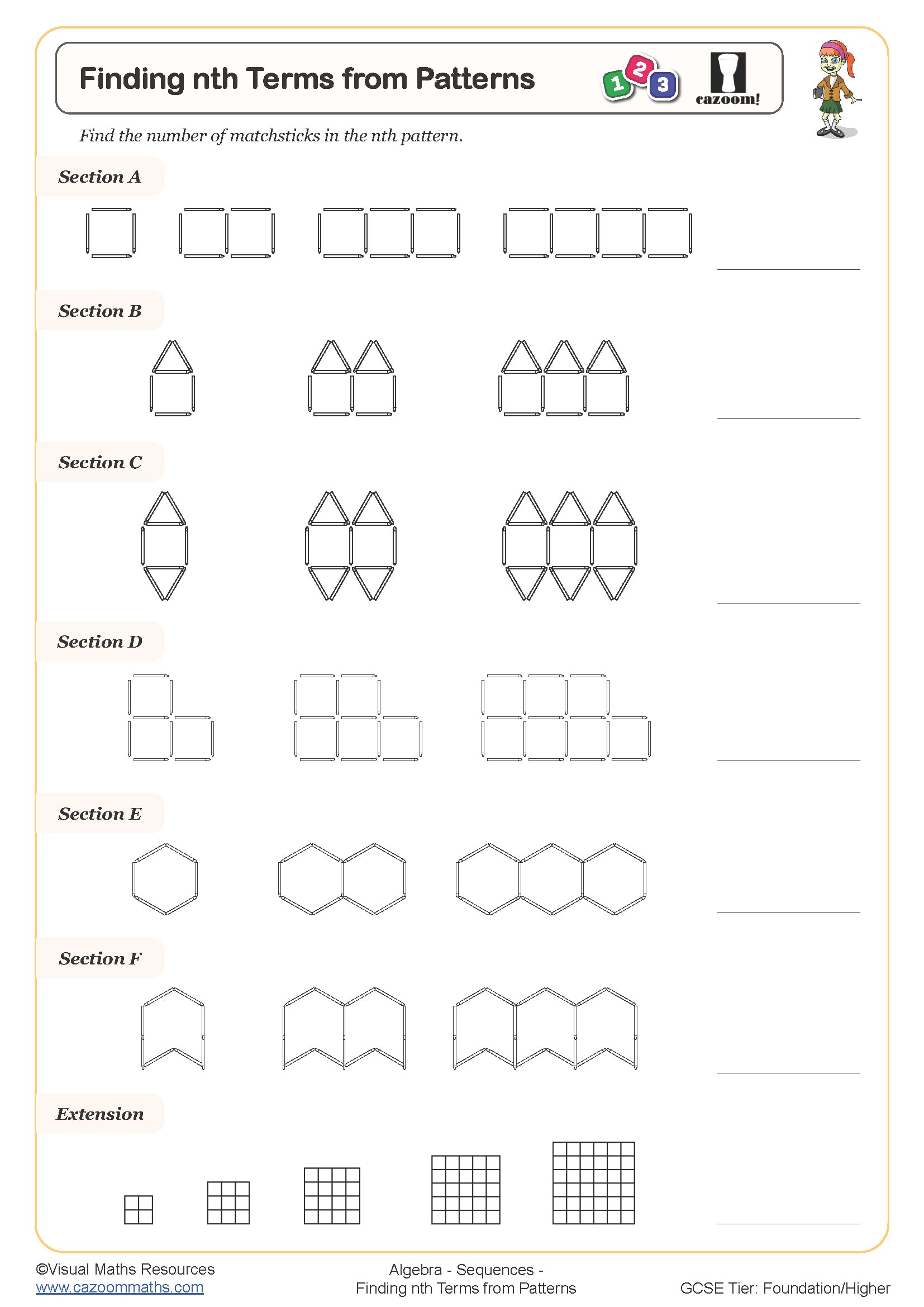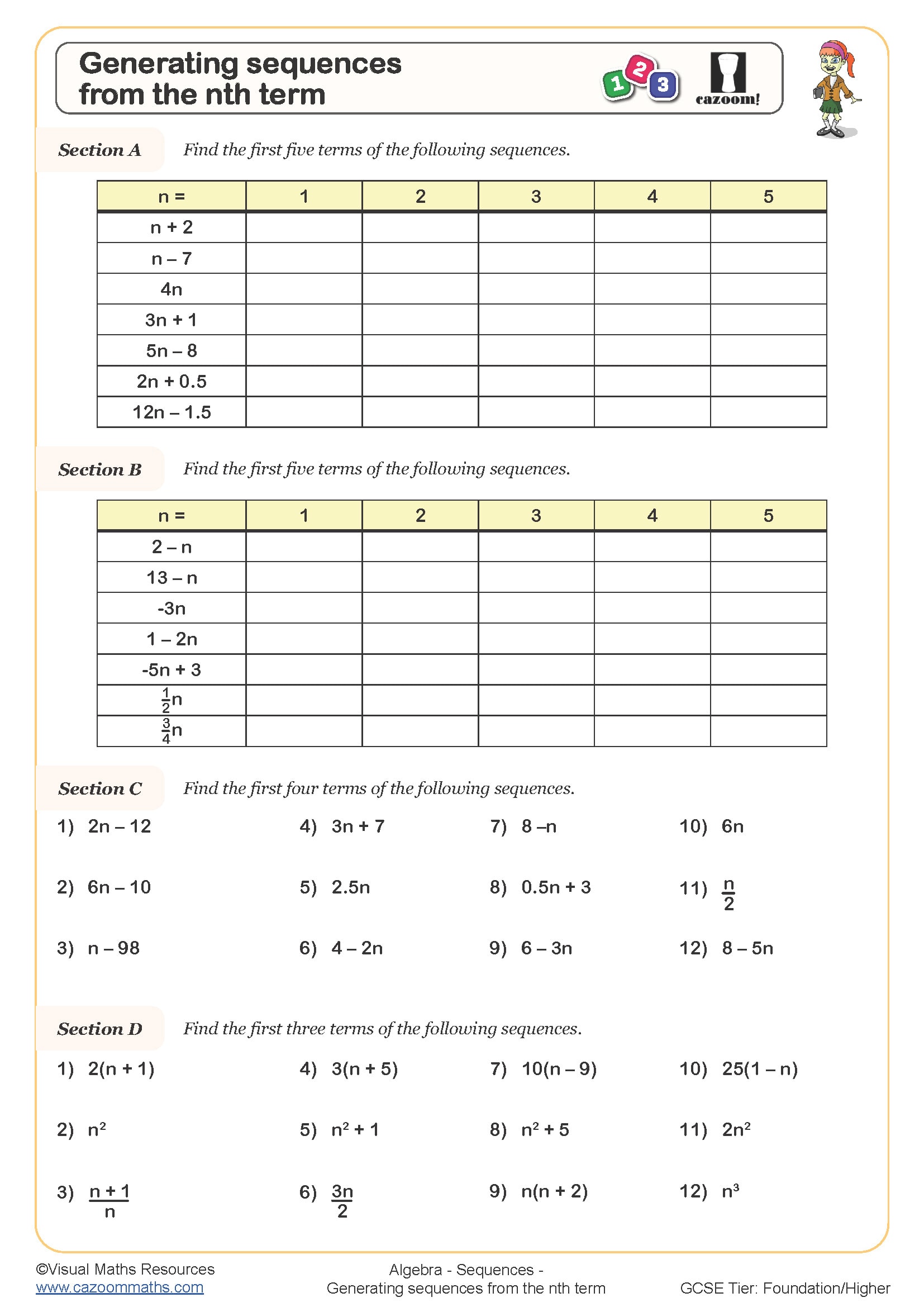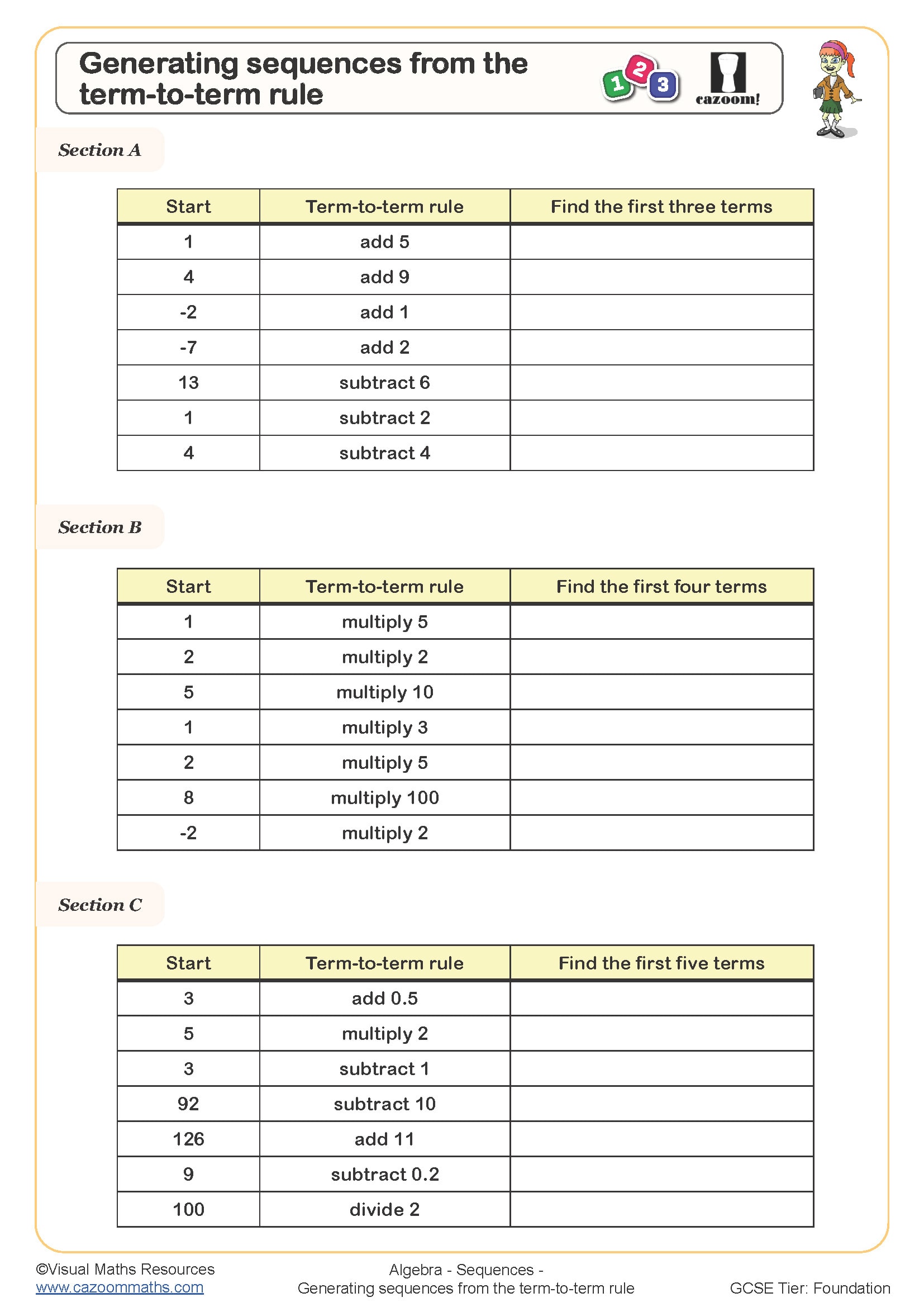Year 7 Sequences Worksheets
All worksheets are created by the team of experienced teachers at Cazoom Maths.
7 Benefits of Using These Printable PDF Worksheets in Class and at Home
Mastering sequences develops the analytical thinking students will need for linear equations, graphs, and function notation in later years. Year 7 learners who practise varied sequence types strengthen their ability to spot mathematical structure and make predictions based on observed patterns. This systematic approach transforms students from passive number followers to active pattern analysts who can express relationships algebraically. Regular exposure to sequence problems helps learners connect position numbers to term values, laying the groundwork for coordinate geometry and graphical representations. The worksheets reinforce these connections through carefully sequenced exercises that gradually increase in complexity.
Specific learning benefits include:
• Develops algebraic thinking through pattern analysis.
• Strengthens logical reasoning and prediction skills.
• Builds fluency with nth-term expressions.
• Enhances problem-solving through systematic approaches.
• Improves mathematical communication and notation.
• Establishes foundations for functional work.
• Cultivates persistence with multi-step problems.
Topic Map: What These KS3 Algebra Worksheets Build Step by Step
These worksheets scaffold learning from counting patterns to algebraic rules, balancing procedural fluency with conceptual understanding. Students begin with familiar arithmetic sequences before tackling geometric patterns and recursive relationships. Visual representations appear alongside numerical work, helping learners connect different mathematical formats. Each topic builds on previous knowledge whilst introducing new challenges that stretch students appropriately.
The core skills covered include:
• Linear sequences – finding differences between consecutive terms
• Arithmetic sequences – identifying common differences and continuing patterns
• Term-to-term rules – expressing how each term relates to previous ones
• Position-to-term rules – connecting term values to their positions
• Finding nth terms – deriving algebraic expressions for any position
• Fibonacci-type sequences – understanding recursive relationships
• Geometric patterns – linking visual arrangements to number sequences
• Special number sequences – exploring triangular and square numbers
• Missing terms – working backwards from given information
Why Parents and Teachers Trust Year 7 Sequence Worksheets for Homework Support
Secondary maths departments choose these worksheets because they address diverse learning needs whilst saving valuable planning time. The materials provide ready-to-use exercises with detailed answer keys that show complete working, enabling teachers to identify specific misconceptions quickly. Natural differentiation occurs within each sheet—students progress at their own pace through increasingly challenging problems without needing separate resources. The consistent format establishes productive classroom routines that maximise learning time. Teachers particularly value how the worksheets support both whole-class teaching and independent practice, with clear examples that demonstrate effective problem-solving strategies. Cazoom Maths worksheets integrate seamlessly with existing schemes of work, providing reliable resources that teachers can deploy immediately without additional preparation.
Applying Sequence Skills Beyond the Classroom in Year 7
In everyday life, mathematical sequences can be found in everything from natural phenomena to technological algorithms. These foundational abilities aid students in methodically analysing real-world circumstances.
• Compute compound interest and investment growth in personal finance
• Developing loops and iterative procedures in computer programming
• Knowing beat structures and rhythm patterns is essential to music composition.
• Planning for gradual fitness gains through sports training
• Design and architecture: producing recurring ornamental patterns
• Finding patterns in experimental measurements using scientific data
• Social media algorithms: identifying and forecasting engagement patterns
• Gaming tactics: figuring out level requirements and score progressions
